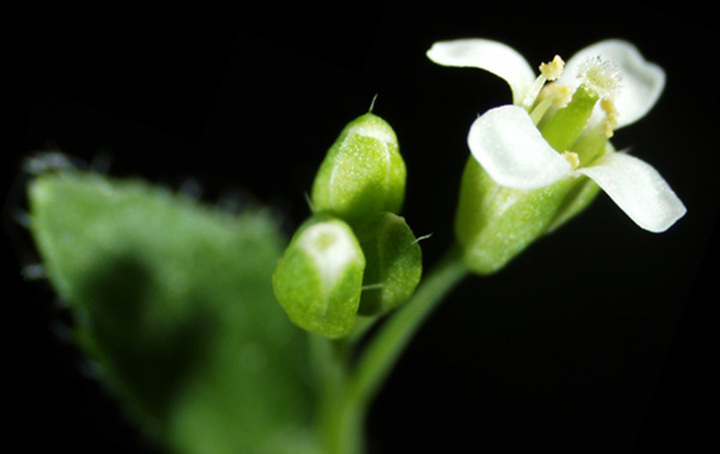
Arabidopsis thaliana. Image by Sui Setz via Wikimedia Commons.
A chemical mechanism recently observed in Arabidopsis—a model genetic organism for crop research—may eventually help backyard gardeners and commercial growers develop healthy crops in nutrient-deficient environments.
Calcium signaling networks documented by Professor Sheng Luan and researchers in the Department of Plant and Microbial Biology were found to promote potassium uptake and remobilization, enabling plants to cope with stress stemming from low nutrient levels. The findings were published in Nature Communications last month and may improve crop output while simultaneously helping the agricultural sector shift toward a more sustainable future.
Potassium is an essential soil mineral regarded by both farmers and backyard gardeners as the “quality” nutrient. In addition to sustaining plant growth and reproduction, potassium plays a key role in helping crops retain water and tolerate drought, control pests, and resist disease.
Unfortunately, low concentrations of potassium in arable soil have led to an uptick in the use of chemical fertilizers in agricultural production. While these synthetic soil additives help boost potassium levels, they are costly and environmentally harmful to produce.
According to the study, the chemical mechanism observed in Arabidopsis can help plants survive and reproduce without the heavy use of chemical fertilizers. The findings may help plant geneticists breed crops capable of more efficiently using potassium when nutrient levels are scarce.
Read the open-access study in Nature Communications.
